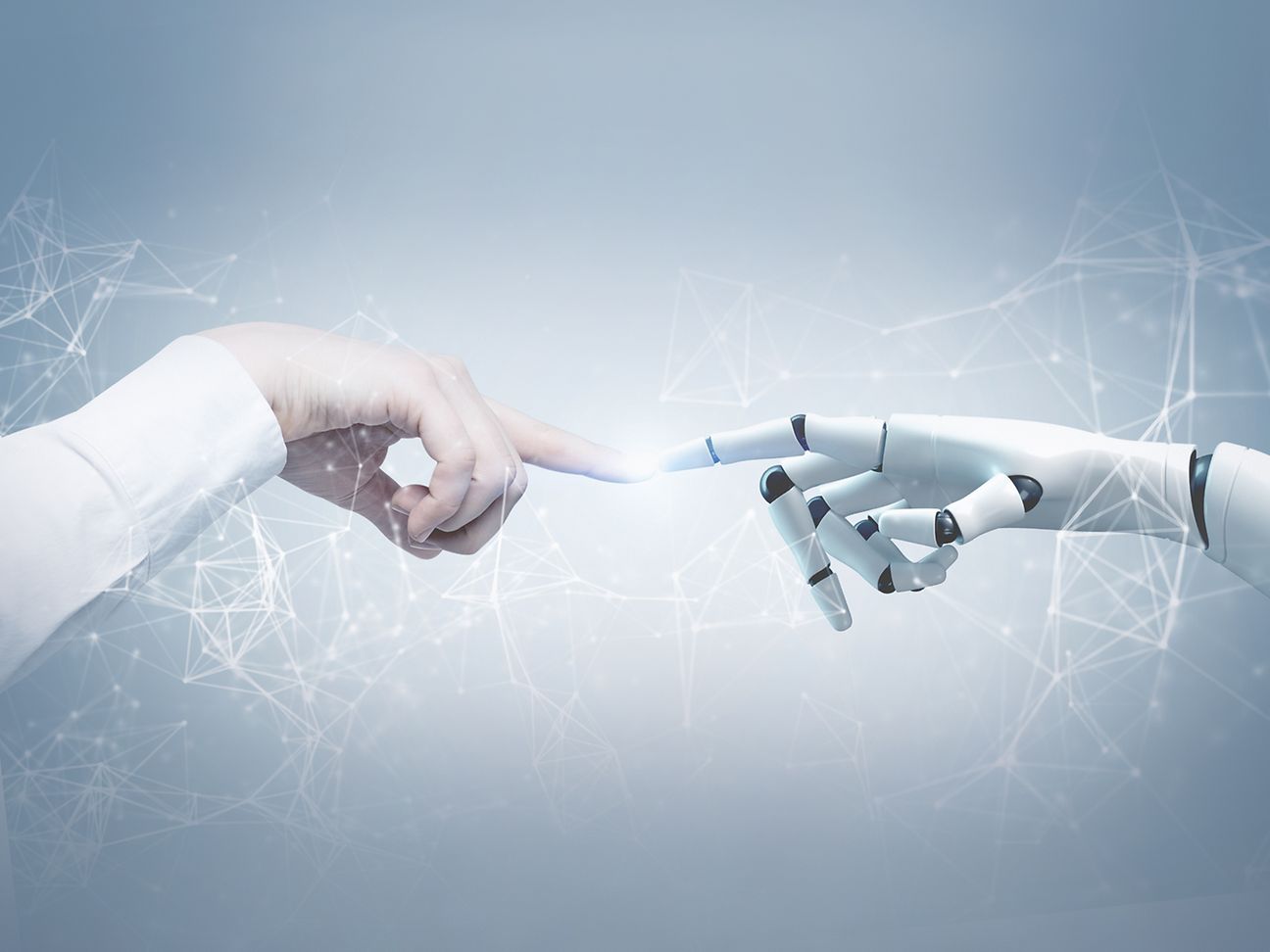The new proximity: When algorithms send hearts
Chatbots, avatars and artificial intelligence (AI) – for more and more people, they are already part of everyday life. Modern chatbots have long since evolved from simple response engines to complex social bots that are also designed to build emotional connections. These bots ask us about our well-being, laugh with us, make jokes, and strive for harmony. But the development goes even further: Some bots even offer psychological support.
Social bots can fill a gap in us humans that arises from isolation and loneliness. In a world where human contact is often restricted, they offer a form of closeness and understanding. Many people find this comforting and valuable. But what does it mean when we start to get involved with these artificial friends? Does this development change our interpersonal interaction? Our society? When we start entrusting AI systems with our most intimate thoughts and expecting emotional support from them? What impact does this have on our relationships with real people? Deutsche Telekom is currently investigating this in a large survey with the Allensbach Institute. In the photo show, we show (already) selected examples of why the topic is so relevant.
AI and the end of finitude
Being able to talk to the deceased after death – this is what the so-called "Digital Afterlife" industry wants to make possible with artificial intelligence. Companies can be found on the Internet that offer people to form a digital image of themselves that becomes active after their death. Other companies create virtual avatars, i.e. 3D representations with which bereaved relatives can interact. One example of this is the US start-up You only virtual (YOV). Other startups offer mourners to create AI avatars of the dead.
AI as a psychologist: A substitute for real therapy?
Another field in which AI is increasingly influencing is psychological counseling. At a time when therapy places are scarce and waiting times are often several months, AI-based counseling platforms at least offer a quick solution. These programs can address our worries in real time, calm us down, and guide us through difficult times.
But can these programs really replace human therapists? AI can recognize patterns in our behavior and give us advice, but what about the deep understanding and emotional intuition that are often crucial for successful therapy? Nevertheless, the easy availability of such AI services could lead people to use them as a first point of contact when they need support.
Chatting with Socrates or Taylor Swift? Character.AI makes it possible!
Character.AI shows how popular social bots are for psychological counseling: This tool allows users to design their own AI bots and share them with others. These can be real, prominent personalities (deceased or alive) or fictional characters. But the most popular bot is the therapy bot "Psychologist" created by a user. He received around 78 million messages in 2023 alone. In total, there are 475 bots on the platform that offer help with mental problems.
Woebot as a more digital Therapist
Also, Woebot is an AI-driven chatbot designed to provide psychological support. The bot uses cognitive behavioral therapy (CBT) to help people through difficult emotional phases. Woebot offers immediate support, but it is standardized and does not address individual problems. More about Woebot
Replika, my best (virtual) friend
The App Replika.ai allows users to create a virtual friend who is always available and responds to personal needs. Users can talk about anything with this bot, and Replica adapts to their preferences and behavior over time. AI is programmed to provide a sense of closeness and understanding, which makes it a likeable conversation partner and an important part of some people's lives. More about Replika
Experiment against loneliness: Woman marries AI hologram
The Spanish artist Alicia Framis goes even further. She wants to marry an avatar in Rotterdam in the fall of 2024: An AI hologram named Ailex. His character traits are said to resemble those of the artist's ex-partners. She says: "Love and sex with robots and holograms are an inevitable reality. They are great companions and able to show empathy."
The digital pastor: AI service at the Protestant Kirchentag
When we start entrusting bots with secrets that we might otherwise only tell to a priest or close confidant, what does that mean for our understanding of intimacy and trust? Algorithms are programmed to process and store information, which carries the risk that our most intimate thoughts and feelings will not remain as private as we would like.
For the first time in Germany, a service was conducted exclusively by AI at the 2023 Protestant Kirchentag in Fürth near Nuremberg. From the process to the lyrics to the music, the fair was based entirely on artificial intelligence. The much-discussed experiment attracted more than 400 visitors to the church.








